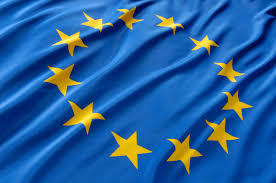So, I’m behind on a lot of stories, but let’s talk about the Novichok story, in which Russia is said to have tried to assassinate ex-spy, Sergei Skripal, using a nerve agent which is part of the Novichok family.
There has been much hysteria over this, because Russia is behind everything these days. The problem is that the Novichok nerve agents probably don’t exist, and if they do, England (nor anyone else) doesn’t know how to detect them.
Craig Murray has been good on this, if you want the chapter on verse on “Novichoks probably don’t even exist” and “No, the Porton Down labs didn’t confirm they were used,” (paraphrasing) go read him.
The current hysterical tendency to blame Russia for virtually everything is dangerous and stupid. Russia is both very powerful, because it has nukes and a decent army, and really not all that dangerous because it has a GDP less than that of California’s and Russia much weaker than Europe.
The EU’s population is 508 million. When the UK leaves, it will be 447 million.
Russia’s population is 143 million.
Minus Britain, the EU has a GDP of 18.1 trillion (purchasing power parity), Russia has an economy of 3.5 trillion (ppp). Germany alone has a GDP (ppp) of 4.0 trillion.
If Russia is doing all that it is blamed for, it has the most competent government in the world and the West is ruled by incompetent boobs.
(Hmmm. The second part is credible.)
The West’s problems are primarily the fault of the West. Trump, Brexit, whatever it is you want to blame on someone evil, look at home, not to the mysterious East and its scary despot (or whatever).
Further, the West is still rich and powerful and has the wherewithal to fix its problems. That, unfortunately, will require either the kind of surveillance/police state that would make the Stasi blush, or actually letting ordinary people have decent lives with less inequality.
Or, I suppose, we can blame all our problems on a nation that is only a great power because of a disproportionately powerful military and which has far less people and resources than we do.
Oh, we’re going for option #2?
Okay, then.
(To be clear, Russia may have killed him. But I don’t consider it proven.)
Update: Story and title edited to correct that Skripal isn’t dead.
The results of the work I do, like this article, are free, but food isn’t, so if you value my work, please DONATE or SUBSCRIBE.



 So,
So,